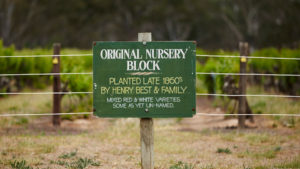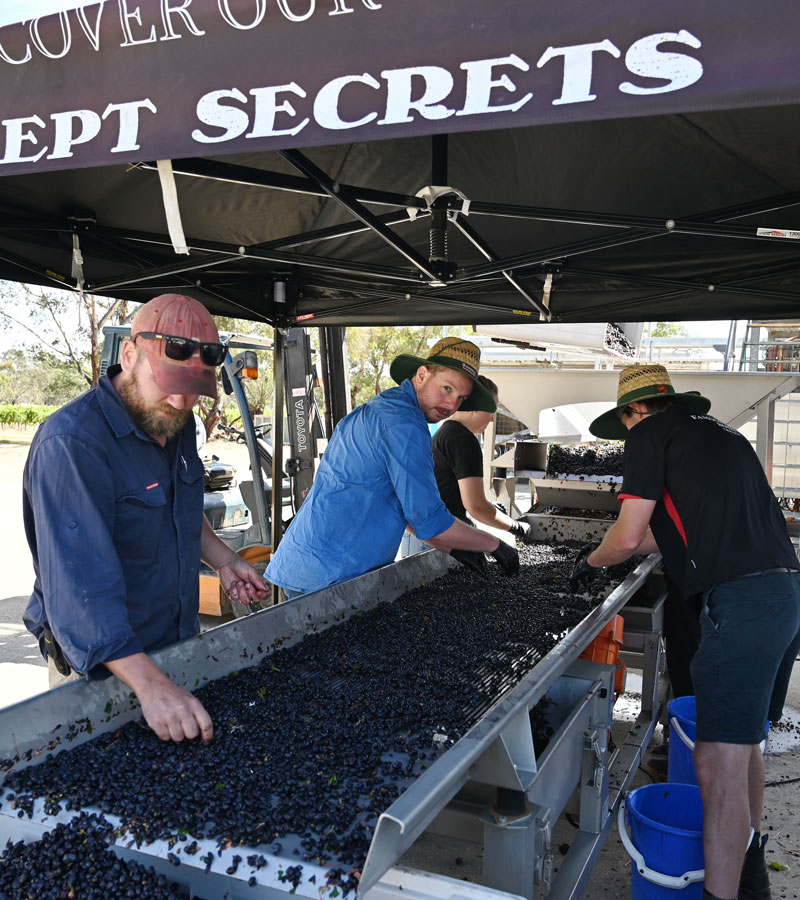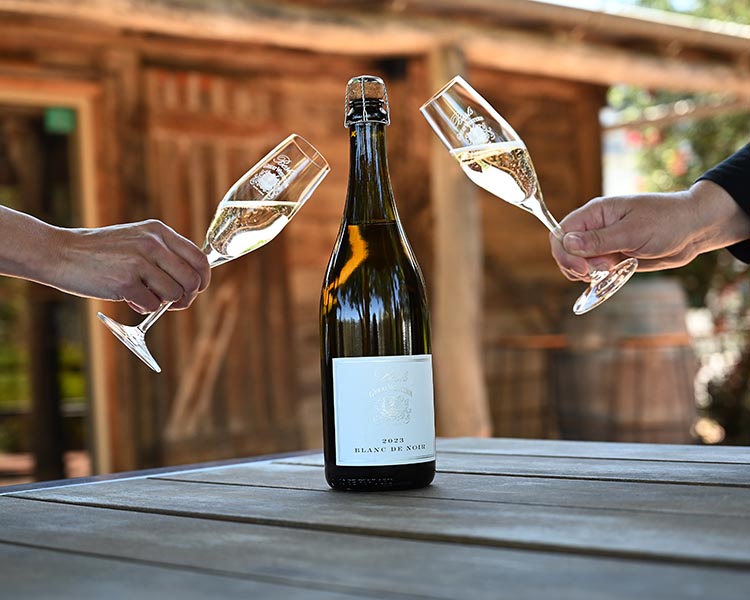Best’s Wines: The little known grapes in our Nursery Block

The Nursery Block at Best’s Wines has always been one of our treasured vineyards, and it is incredibly unique even on a global level. This block is a 1.2-hectare vineyard believed to feature the most extensive pre-phylloxera plantings in Australia, and possibly the world. Within the collection, there are more than 39 separate varieties planted. Eight of which remain unknown and un-named to this day. International viticulturists have visited over the years, keen to research and take cuttings. To discover more about some of the more unusual mix of vines within our custody. It’s a living museum and a vital part of our history. Best’s takes very seriously its role as custodian of this important piece of earth.
Today the Nursery Block grapes are carefully hand-picked, first the white varieties, then the red varieties. Wine is not produced every year from this block as it depends entirely on the vintage conditions. Abundant in fruit character, the Nursery Block wines stand alone as a definitive style expressing the vineyard’s unique personalities.
Whilst Shiraz, Sauvignon Blanc, Dolcetto and Pinot Noir all feature. There’s a raft of more unusual varietals scattered throughout which may not be as prominent. These grapes end up blended in our Concongella Blanc and Nursery Block Dry Red. But they each have an interesting history. Several of them are rare, some of them extremely so. Here are some of the recognised varieties you may not be familiar with.
WHITE VARIETIES
Furmint
Furmint originates in Hungary, where it is best known as the main grape in the renowned dessert wines, Tokaji. Recently however, Furmint has found favour with increasing numbers of Hungarian producers. Made as a single varietal dry table wine, where its fine acid structure and complexity is winning a global following.
Dourado
An extremely rare grape. Galego Dourado is one of the key varieties in the sweet fortified wines of Portugal’s Carcavelos appellation. As at 2010, just six hectares remained of Dourado across the entire country. Dourado is found mainly on the Atlantic coast around Lisbon.
Troven
Now considered an extinct variety in France, Troyen was one of several varieties used in the production of Champagne. Before the AOC settled on its current varietal make-up of seven permitted grapes. Pinot Noir, Pinot Meunier, Chardonnay, Pinot Gris, Pinot Blanc, Pinot Meslier and Arbane.
Gouais Blanc
Seldom grown today, Gouais Blanc was once widely cultivated across French regions including Burgundy, Champagne and the Jura. It is an ancestor of many European grape varieties including Chardonnay, Auxerrois, Gamay Noir and Petit Meslier.
RED GRAPES
Fer
The French variety Fer is most commonly found in south western France. Particularly in the rustic red wines of the Marcillac AOC. Medium-bodied with firm tannins, Fer grapes must account for 80 per cent of the blend in wines labelled as Marcillac. With varieties such as Cabernet Sauvignon and Merlot making up the balance.
Gueuche
Now close to extinction. Gueuche Noir is a French wine variety historically grown in the Franche-Comte province in the country’s east. Researchers believe it is a relative of grape varieties including Chardonnay and Gamay.
Tinta Amarella
Also known as Trincadeira, Tinta Amarela originates in Portugal, where it is plays a role in Port wine production. It is still widely grown today, most notably in Douro, Dao and Alentejo regions. The grape is renowned for its dark colouring and herbaceous aromas.
Aubun
A French grape grown mainly in the Rhone Valley, Aubun is used mainly as a blending ingredient. With soft tannins and moderate acidity. Aubun is best suited to production of wines to be enjoyed in their youth, rather than following extensive maturation.





